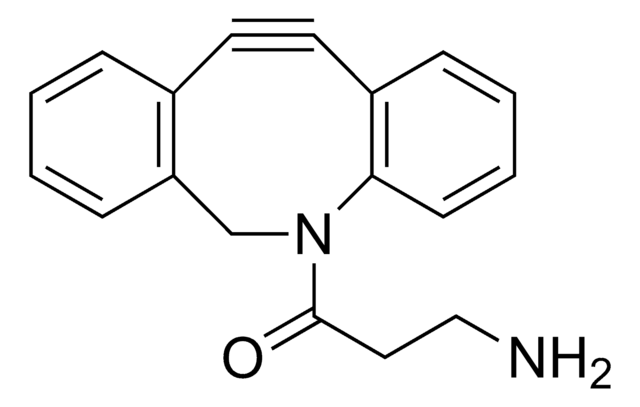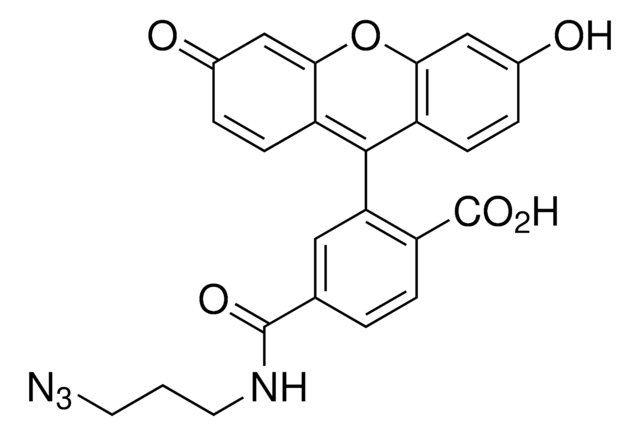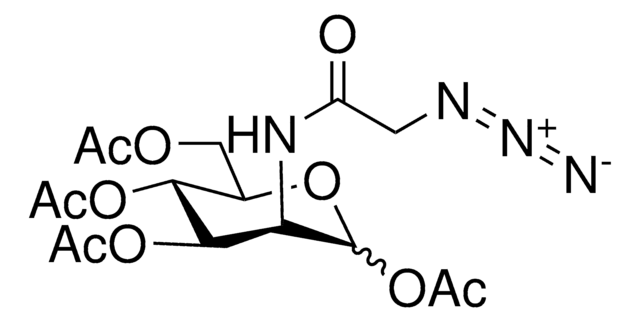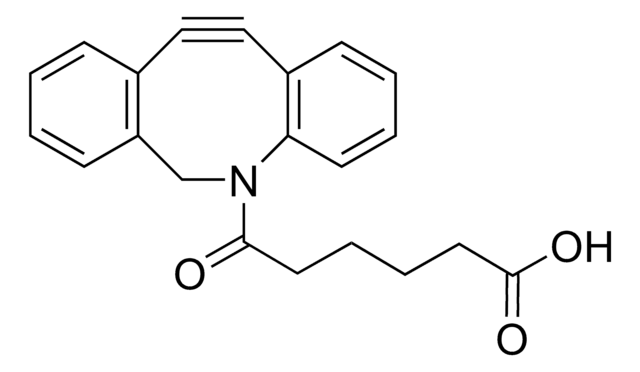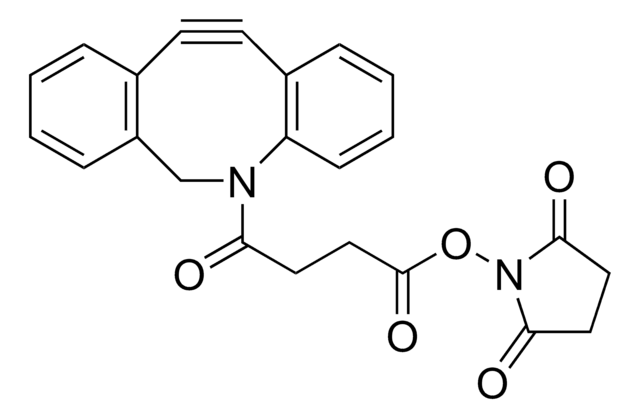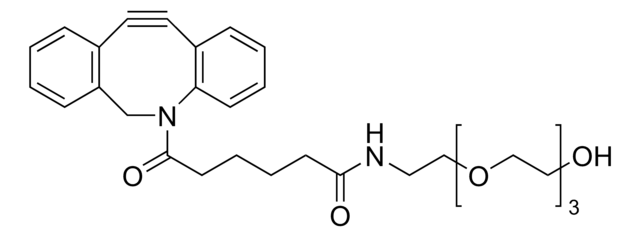777374
DBCO-Cy5
for Copper-free Click Chemistry
Synonym(s):
ADIBO-Cy5, Azadibenzocyclooctyne-Cy5, Dibenzocyclooctyne-Cy5
About This Item
Recommended Products
Quality Level
form
solid
reaction suitability
reaction type: click chemistry
storage temp.
−20°C
SMILES string
CC[NH+](CC)CC.O=C(CCNC(CCCCC[N+]1=C(/C=C/C=C/C=C2C(C)(C)C3=CC(S([O-])(=O)=O)=CC=C3N\2CCCS([O-])(=O)=O)C(C)(C)C4=C1C=CC(S([O-])(=O)=O)=C4)=O)N5CC6=C(C=CC=C6)C#CC7=C5C=CC=C7.CC[NH+](CC)CC
InChI
1S/C52H56N4O11S3.2C6H15N/c1-51(2)42-34-40(69(62,63)64)25-27-45(42)54(31-14-6-9-22-49(57)53-30-29-50(58)56-36-39-18-11-10-16-37(39)23-24-38-17-12-13-19-44(38)56)47(51)20-7-5-8-21-48-52(3,4)43-35-41(70(65,66)67)26-28-46(43)55(48)32-15-33-68(59,60)61;2*1-4-7(5-2)6-3/h5,7-8,10-13,16-21,25-28,34-35H,6,9,14-15,22,29-33,36H2,1-4H3,(H3-,53,57,59,60,61,62,63,64,65,66,67);2*4-6H2,1-3H3
InChI key
PNVUJAWSQCGWCT-UHFFFAOYSA-N
Related Categories
Application
Solubility : DMSO, DMF
Abs/Em - 646/661 nm
Extinction Coefficient:- 251,000 cm-1M-1
Solubility : DMSO, DMF
Abs/Em - 646/661 nm
Extinction Coefficient:- 251,000 cm-1M-1
Signal Word
Warning
Hazard Statements
Precautionary Statements
Hazard Classifications
Eye Irrit. 2 - Skin Irrit. 2 - STOT SE 3
Target Organs
Respiratory system
Storage Class Code
11 - Combustible Solids
WGK
WGK 3
Flash Point(F)
Not applicable
Flash Point(C)
Not applicable
Choose from one of the most recent versions:
Already Own This Product?
Find documentation for the products that you have recently purchased in the Document Library.
Customers Also Viewed
Articles
Copper-free click chemistry is an alternative approach to click chemistry that proceeds at a lower activation barrier and is free of cytotoxic transition metal catalysts.
Explore the principles and applications of click chemistry in drug discovery, highlighting efficient reactions that streamline the synthesis of bioactive compounds.
Our team of scientists has experience in all areas of research including Life Science, Material Science, Chemical Synthesis, Chromatography, Analytical and many others.
Contact Technical Service